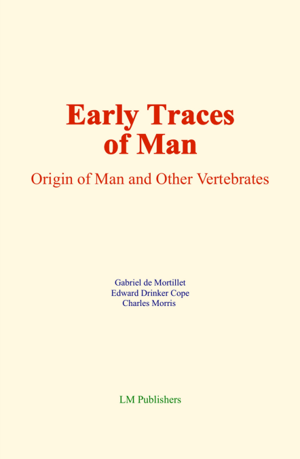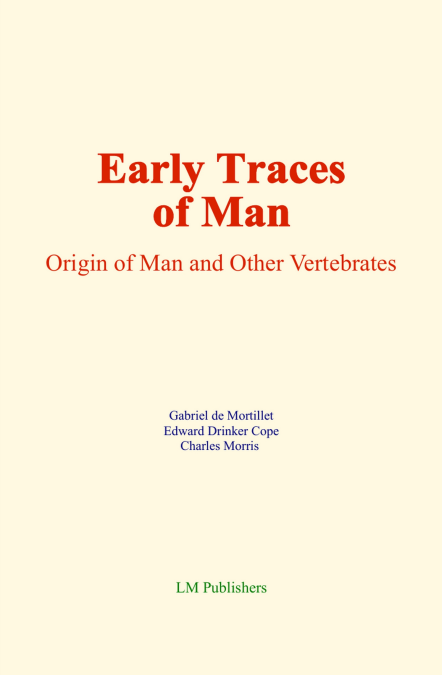
- Retrait en 2 heures
- Assortiment impressionnant
- Paiement sécurisé
- Toujours un magasin près de chez vous
- Retrait gratuit dans votre magasin Club
- 7.000.0000 titres dans notre catalogue
- Payer en toute sécurité
- Toujours un magasin près de chez vous
Early Traces of Man EBOOK
Origin of Man and Other Vertebrates
Gabriel de Mortillet, Edward Drinker Cope, Charles MorrisDescription
The early part of this century saw the establishment of most of the fundamental principles of the science of physics, especially as applied to astronomy. A few decades later saw the science of chemistry emerge from the empirical and enter the philosophical stage. It has been reserved for the second half of the century to witness the discovery of the facts and principles of the history of life on the earth. The public mind is gradually awakening to the fact that the grandest truths of creation are being placed within their reach by the researches of contemporary science, and that the knowledge of the manner of the origin of the human race is no longer withheld from us.
The study of the fossil remains of animals has revealed an immense number of forms of life which in former ages have peopled the world. The study of geology has shown that the history of our planet is marked by successive deposits in water, which have become beds of rocks. The relation of these beds to each other gives us the relations of the animals and plants whose fossil remains they contain. Thus we have obtained a consecutive history of life from its early appearance to the present day. Before the doctrine of evolution was understood, the successive populations that filled the successive periods were supposed to have been the products of special creations. Now it is believed, with the best of reason, that all forms of life have been produced by changes of structure which arose in the course of descent, the one species coming from the other; and that interruptions in the series of species from older to later periods are simply due to the absence of the means of preserving their remains at certain times during the course of the history of the world. These interruptions indicate periods of dry land, since fossils are not preserved unless they are excluded from the air by a covering of water or of mud.
Spécifications
Parties prenantes
- Auteur(s) :
- Editeur:
Contenu
- Langue:
- Anglais
Caractéristiques
- EAN:
- 9782384695003
- Date de parution :
- 02-10-25
- Format:
- Ebook
- Protection digitale:
- Digital watermarking
- Format numérique:
- ePub

Seulement chez Librairie Club
Les avis
Nous publions uniquement les avis qui respectent les conditions requises. Consultez nos conditions pour les avis.





